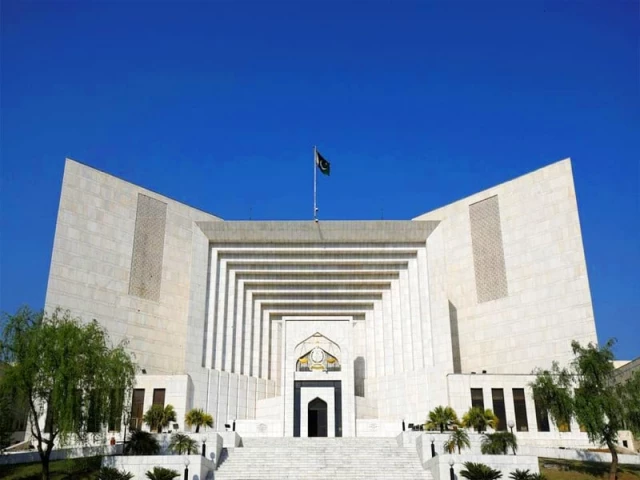Misuse doesn't warrant law annulment: judge
PTI lawyer argues against appeals in military court case

Justice Aminuddin Khan has noted that the misuse of a law does not justify its annulment.
"The blasphemy law was also being misused. In order to stop this manipulation, later it was decided that investigation of such a case be conducted by an officer of the rank of superintendent police," said the judge while heading a seven-member Constitutional Bench (CB) of the Supreme Court on Tuesday.
The bench was hearing of the intra-court appeals filed against a Supreme Court verdict that annulled the trial of May 9 rioters in military courts in October 2023. A five-member SC bench had also revoked some sections of the Pakistan Army Act, 1952 in its order.
Arguing against the appeals, famous lawyer and PTI leader Salman Akram Raja stated that the apex court ruling in the FB Ali case was in line with the 1962 Constitution. In the FB Ali case, a five-member SC bench had allowed the trial of a civilian in a military court.
Justice Jamal Mandokhail inquired about the powers of military courts under the Army Act, 1952 asking whether a person who is not part of the military could be tried in a military court solely on the basis of his crime. Raja responded that in the FB Ali case, it was stated that the trial of civilians in military courts is only permissible if fundamental rights are ensured.
Justice Muhammad Ali Mazhar asked how FB Ali, who was himself a civilian, was court-martialed.
Salman Akram Raja replied that the court had ruled that ensuring fundamental rights was necessary and that there was no violation of fundamental rights in the trial.
He said the FB Ali case discussed Article 2(d)(1) of the Army Act, 1952 and affirmed that the act introduced through a presidential ordinance was valid, while also stating that it could be reviewed under fundamental rights.
Justice Mandokhail asked about the definition of "nexus" in the FB Ali case.
Salman Akram Raja replied that it referred to inciting the armed forces. He argued that the FB Ali case had been interpreted in a way that gave the impression of allowing the establishment of separate courts.
Justice Aminuddin Khan noted that Salman Akram Raja was arguing against the main decision. In response, Raja mentioned that Justice Ayesha Malik's ruling was also relevant.
Justice Muhammad Ali Mazhar then questioned why sections of the Army Act, 1952 had been declared void. Raja said appeals are filed against judgments, not reasons, and that courts can modify reasons while maintaining the operative part of the ruling, which happens regularly.
Justice Mandokhail recalled that in 1968, an ordinance granted judicial powers to a tehsildar in Balochistan, but when it was challenged in the Supreme Court in the Azizullah Memon case, the court struck it down. He added that the practice continued for 14 years even after the 1973 Constitution.
Raja argued that the law changed in 1987 with the introduction of Clause 3 of Article 175. He asserted that if the court upheld Justice Ayesha Malik's ruling on Article 10-A, it would be a victory for his argument.
Likewise, he said that even if the court ruled that a court could not be established outside Clause 3 of Article 175, it would still support his stance.
The court later adjourned the hearing till next Monday.



















COMMENTS
Comments are moderated and generally will be posted if they are on-topic and not abusive.
For more information, please see our Comments FAQ